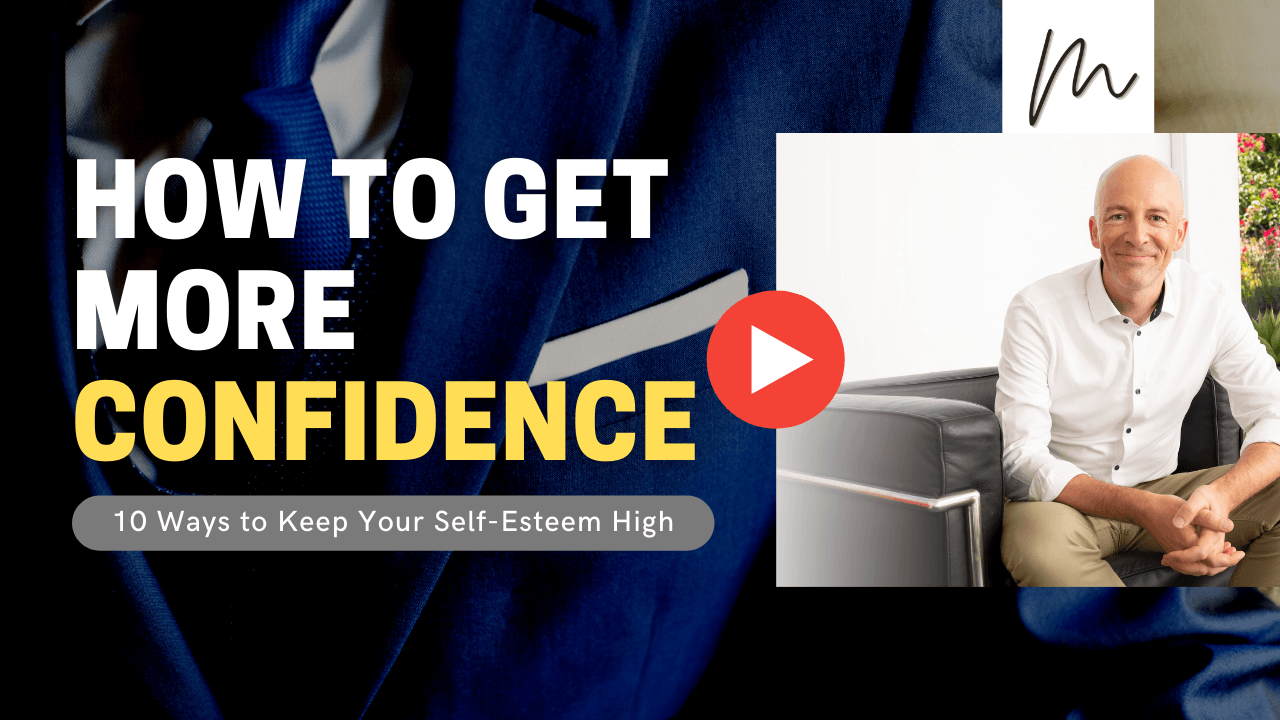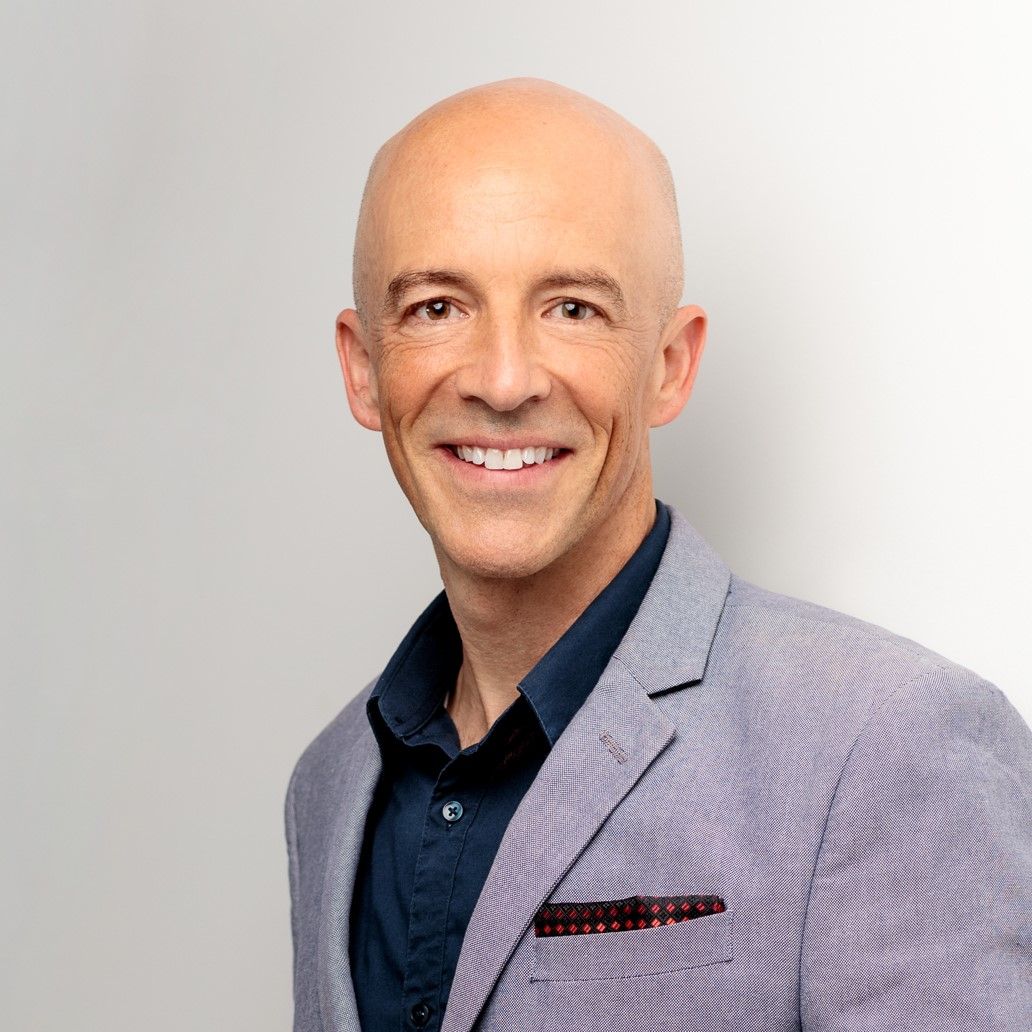Keep your self-esteem high with these practical strategies.
Anyone can appear confident on the outside, but it's what's inside that counts.
Don't mistake fake smiles and loud opinions for confidence. Confident people are comfortable in their own skin. They don't worry about impressing others, and are fine if people don't agree with them. Sounds good, right?
So, are you ready to feel more confident? I've assembled my personal top-10 list of ways to get more confidence and keep your self-esteem high. This list was compiled by listening to clients, family and friends, and through my own personal experience.
My hope is that by practicing these attitudes and actions, you too can boost your confidence, reduce stress, and be more comfortable being you.
Watch the Video: How to Get More Confidence
1. Know Your Principles
The first step to getting more confidence is writing down your core principals. List the characteristics that you value and endeavor to practice - things like honesty, being a loyal friend, etc.
Write them down and refer to them regularly. They will be your bedrock when tough situations arise in your career, relationships, and other areas of your life. You'll feel confident knowing that your principles are always there to guide you.
2. Tell the Truth
Tell the truth, especially to yourself. Denial is one of the most popular
defense mechanisms people use to handle stress. But denial catches up to you and the truth always comes out.
When you lie to yourself, you lose credibility with yourself, and that erodes self confidence. Be bold enough to look at yourself in the mirror and admit the truth about what's going on in your life, good or bad.
The confident person knows that challenges are inevitable, but also surmountable. As author Marie Forleo says,
everything is figureoutable.
3. Get Exercise
Nothing complex here. Exercise produces a host of natural chemicals that boost your confidence.
Morning exercise has been
shown in clinical studies to reduce symptoms of depression. Why not start you day with a natural antidepressant?
Your workouts don't have to be long and arduous. Just 20-30 minutes is enough to improve your mood and confidence.
4. Fail Forward
"Fail forward" is one my favorite sayings of actor Will Smith.
The idea behind fail forward is that you never retreat after a defeat. If you fall down, you get up and keep moving forward. Just like a baby learning to walk.
The famous self-help guru Tony Robbins has a question he asks people who are afraid of failure: "how long would you give your average baby to walk before you told him to stop?" Of course the answer is, as many times as necessary! Not walking is not an option.
5. Turn Anxiety into Action
In the same vein as fail forward, confidence comes from taking action instead of worrying.
Sitting around feeling anxious trains you to normalize indecision and doubt. This is not an empowered state.
Taking even a small action toward a solution builds confidence. If you're okay with course correction, then take action. As the saying goes, "A ship in harbor is safe, but that is not what ships are built for."
For more on taking action, check out my blog post
Action Cures Anxiety.
6. Don't People-Please
Opinions can be unpopular. If you're afraid of other people disapproving of what you think or do, you're in trouble. Your confidence will suffer.
However, if you're truly okay with people not agreeing with you, then your confidence stays intact. You trust yourself to be yourself.
Learn more about people-pleasing on my blog
How to Finally Stop Being a People-Pleaser.
7. Don't Always Be Right
As tempting as it is to defend your opinion (especially if you're passionate about it), be open to the other side of the argument.
If your ego is overly invested in winning every argument, you risk damaging your self-esteem when you lose. However, if you care less about being right and more about learning, your confidence remains unscathed.
If you look up the definition of the word argument, nowhere does it mention winning. Perhaps then, the purpose of an argument is not to be right, but to learn.
8. Inspiration, Not Comparison
Comparing yourself to others is dangerous. So much of our society, especially social media, shows the highlights of everyone's life (and not the lowlights).
Seek
inspiration
from others, but understand that they are imperfect and human just like you.
9. Always Be Learning
Cultivate a student mindset, not an expert mindset.
If your goal is to always be learning, your confidence won't diminish when you find out you're wrong about something. As they say, if you're the smartest person in the room, you're in the wrong room.
Confidence comes from knowing that it's okay not to know. Always be open to learning.
10. Use Empathy
Leveraging empathy can be one of the most powerful skills you learn. If you're having a difficult time dealing with someone, tap into your empathy.
Empathy is not about excusing other people's bad behavior, rather, it's a tool to depersonalize their behavior so you can keep your confidence intact.
Oftentimes, when someone is rude to you, they're acting out an earlier experience in their life. They're in pain and lashing out, and you just happen to be there. Use your empathy and preserve your confidence. Know that their pain has little or nothing to do with you.
Try It Out
If this list resonated with you, go out and try some experiments in the real world.
For example, you could go to your next meeting at work and observe people through an empathy lens. Or you might type up your core principles, buy a nice picture frame, and hang it on your wall.
Ultimately, confidence is not something that you "achieve." Confidence is like a muscle. You need to practice the attitudes and actions that strengthen it.





